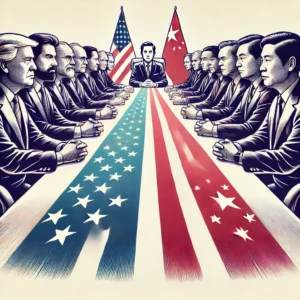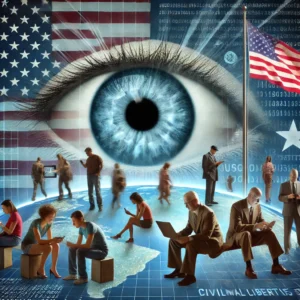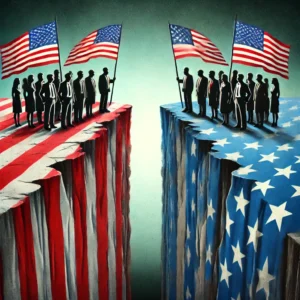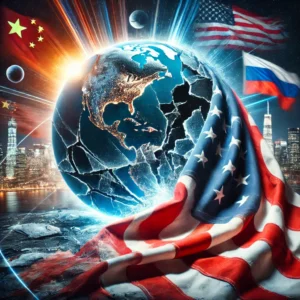America’s Shifting Global Alliances: A Changing World Order

As of March 7, 2025, the United States finds itself navigating a complex landscape of domestic and international challenges that are redefining its role on the global stage. The second administration of President Donald Trump has introduced significant shifts in foreign policy, domestic governance, and societal dynamics. This comprehensive analysis delves into the key aspects of America’s current affairs, exploring the implications of recent policy decisions and societal trends.
Reshaping the Global Order: America’s Foreign Policy Transformation
Under President Trump’s leadership, the United States has embarked on a path that challenges the post-World War II international order it once championed. The administration’s “America First” doctrine has led to a series of actions that have unsettled traditional alliances and emboldened rival powers.

Strained Alliances and Shifting Partnerships
One of the most notable developments is the administration’s adversarial stance toward longstanding allies. The imposition of punitive tariffs on countries such as Canada has strained relations that were once considered unshakeable. President Trump’s assertion that Canada should integrate into the United States as its 51st state has been met with sharp rebuke from Canadian officials, who view this as an affront to their sovereignty. Yvan Baker, a Canadian lawmaker, remarked, “The U.S. has switched sides from standing with democracies like Canada, like France, like Japan, and is now standing with dictators like Putin. People in free countries all around the world should be very concerned.”
In Europe, leaders are reassessing their security and economic strategies in light of America’s unpredictable policies. French President Emmanuel Macron has called for a major rearmament drive, emphasizing that Europe must prepare for a future where it cannot rely on U.S. support. This sentiment reflects a growing desire for strategic autonomy among European nations, driven by concerns over being abandoned by their traditional ally.

Engagement with Authoritarian Regimes
The Trump administration’s foreign policy has also been characterized by a rapprochement with authoritarian leaders. The warming of relations with Russia has raised alarms about a potential realignment that could undermine democratic values globally. Domestically, this shift has sparked debates about the United States’ commitment to promoting democracy abroad, with critics arguing that such alliances could embolden autocratic tendencies worldwide.
Domestic Policies and Societal Impacts
On the home front, the administration’s policies have led to significant debates and divisions, particularly concerning immigration, civil liberties, and economic strategies.

Immigration Policies and Civil Liberties
Recent reports indicate that the U.S. government plans to revoke visas of foreign students based on pro-Palestinian social media posts identified through artificial intelligence surveillance. This move has raised concerns about free speech and the potential for overreach in monitoring individuals’ online activities. Critics argue that such measures could set a precedent for broader infringements on civil liberties, affecting not only foreign nationals but also U.S. citizens.
Economic Nationalism and Trade Policies
The administration’s economic policies have been marked by a strong protectionist stance. The introduction of reciprocal tariffs on Canadian and Mexican goods reflects a broader strategy to prioritize domestic industries. While supporters argue that these measures protect American jobs, critics warn of potential trade wars that could harm the global economy and lead to increased prices for consumers.

Challenges to Democratic Institutions
The current political climate has intensified discussions about the resilience of American democratic institutions. The administration’s confrontational approach toward the media, including the exclusion of non-partisan journalists from certain events, has sparked debates about press freedom. Additionally, the censure of Democratic Congressman Al Green for disrupting President Trump’s congressional address highlights deepening partisan divides and raises questions about the state of free expression in political discourse.
Public Sentiment and National Identity
The evolving political landscape has had a profound impact on public sentiment and perceptions of national identity.
Erosion of Democratic Norms
Scholars and commentators have expressed concerns about the erosion of democratic norms in the United States. The administration’s actions, including attempts to suppress dissenting voices and undermine traditional checks and balances, have been compared to tactics employed by authoritarian regimes. This shift has led to debates about the country’s commitment to democratic principles and the potential long-term effects on its political system.

Public Disillusionment and Polarization
The current political environment has contributed to increased public disillusionment and polarization. Economic disparities, debates over social justice, and differing views on America’s role in the world have deepened divisions within society. This polarization poses challenges to governance and raises questions about the country’s ability to unite in addressing pressing issues.
America’s Position in a Multipolar World
The global balance of power is shifting, with the United States facing new challenges to its longstanding dominance.
Emergence of New Global Powers

The rise of China and Russia as significant global players has transformed the international order from unipolarity to multipolarity. China’s economic growth and technological advancements, coupled with Russia’s strategic assertiveness, present challenges to U.S. influence. This shift necessitates a reevaluation of American foreign policy and its approach to maintaining global leadership.
Economic and Technological Competition
The United States is grappling with economic and technological competition from emerging powers. Investments in artificial intelligence, cybersecurity, and infrastructure are critical to maintaining its competitive edge. The administration’s focus on protectionist policies must be balanced with strategies that promote innovation and global collaboration to address shared challenges.
